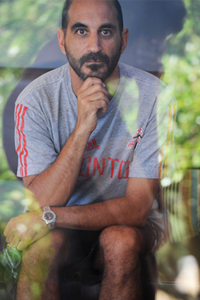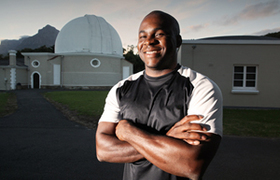Victims of sexual assault denied access to compensation
17 February 2014
Although compensation for victims of sexual assault is available within the criminal justice system, complainants are often denied access to compensation as a result of court officials' bias.
This was among the main findings of Dr Bryant Greenbaum, whose doctoral thesis investigated why sexual assault complainants - unlike their counterparts in commercial and violent crime cases - did not benefit from forfeiture proceedings, or from compensation attached to suspended sentences and correctional supervision orders.
Greenbaum also found that by not informing complainants of social relief and distress grants, and by not assisting them to apply for such grants, court officials denied the victims of sexual assault access to much-needed funds to help them get back on their feet, "Court officials' bias stems from the assumptions that victims don't want compensation; that their losses are not quantifiable; and that they would abuse social grants," explains Greenbaum. His research rebutted these assumptions, as sexual violence victims surveyed acknowledged they wanted compensation and could provide receipts to prove their losses.
Complainants also have to contend with gender bias, he says, adding that, "Due to the composition of the judiciary, national prosecuting authority and state attorneys, and the fact that their institutional overseers are overwhelmingly male, they lack a full understanding of the financial losses of sexual violence victims."
Greenbaum, a Canadian lawyer, worked for a government compensation fund for victims of violent crime in his home country. While there he observed the following: "The compensation greatly assisted the victims in getting their lives back in order. They (the victims) also welcomed the chance to tell government officials of their hardships."
In South Africa, Greenbaum worked for the National Treasury and oversaw the budget of the security cluster, where he was confronted with the reality that there was "enough money in the fiscus to assist victims through compensation, (and) it's more a case of maladministration and bias in the criminal justice system" that blocks their access to these funds.
In his study Greenbaum interviewed 27 criminal justice role-players, reviewed eight court file case studies, and asked 47 victims to complete a survey to substantiate his findings.
In an unprecedented move, Greenbaum entered into proceedings to prove court officials' bias. The case, which at the time was still before the court, concerned a German paedophile (eventually convicted) who lured township children into his house, where he sexually assaulted them. His house and car were seized by the state.
Greenbaum brought a complaint to the Cape Law Society against the State Attorney, who was taking instructions from the National Prosecuting Authority (NPA). Greenbaum took the position that the NPA was being unreasonable by not ensuring that money from the sale of seized assets could be used to compensate the paedophile's victims.
"The NPA finally acknowledged that there was bias among court officials, but it only did that upon threat of legal sanction." Furthermore, the NPA admitted in submissions to the Cape Law Society that they had the power to assist victims of sexual violence in forfeiture proceedings.
Greenbaum believes this type of action - what he terms 'legal activism' - should as a matter of course be part of doctoral studies undertaken by postgraduate law students, who are often certified lawyers.
"Academia undertaken by lawyers should have a real-life component. Most (law students) who do PhDs are legally trained, and it is wasteful not to use those skills. By not tapping in to the legal skills of doctoral students, (South African) institutions are not fulfilling their commitment to post-apartheid South Africa," he believes.
Story by Abigail Calata. Image by Michael Hammond.
 This work is licensed under a Creative Commons Attribution-NoDerivatives 4.0 International License.
This work is licensed under a Creative Commons Attribution-NoDerivatives 4.0 International License.
Please view the republishing articles page for more information.










